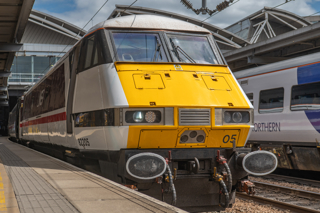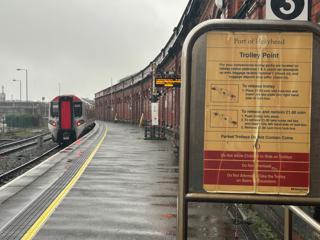Advertisement feature from RSSB
Rail standards help tackle problems before they occur. RSSB develops and improves these standards in collaboration with the industry, bringing sector priorities together with our deep experience and latest research.
The RSSB standards catalogue lists over 250 railway standards. Classifications include Railway Group Standards containing national technical rules, Rail Industry Standards, Guidance Notes and the Rule Book.
Compliance with some is compulsory; others are voluntary. But together they reduce cost, reduce admin, and increase safety. They help rail companies address their obligations as efficiently as possible.
What is a standard?
Standards are technical documents that give instructions or guidance on the best way to do things, or the minimum requirements for products or services. They may lay out technical or engineering requirements, or prescribe the correct approach for carrying out tasks.
So it’s not surprising that some may see standards as restrictive. But what they really are is the product of accumulated technical expertise and hard-won experience: the distilled collective learnings of the rail industry. So individual organisations don’t have to keep solving the same problems from scratch.
They make it possible for interoperation between multiple rail organisations. They let the industry work safely, make complex, technical projects run smoothly, and operate efficiently and cost-effectively. Perhaps most importantly, they’re designed to anticipate and avoid problems before they can happen.

For the industry, by the industry
The railway in Great Britain is self-governing when it comes to creating standards, which means that railway standards are designed collaboratively for the industry, by the industry.
Seven standards committees cover different subjects, including: rolling stock; plant; energy; command, control and signalling; infrastructure; train operation and management; and data, systems and telematics, with members elected to represent the views of their industry category. So representatives from around the industry decide by consensus the content of standards – and ensure rail’s business objectives are supported. Plus the consultation process allows anyone to get involved.
All this makes our standards incredibly robust.
Standards are not only effective, but cost-effective. For example, AC electrification standards published at the end of 2022 will save the industry millions of pounds. And we can expect similar benefits for areas as diverse as hydrogen-fuelled rolling stock, and control, command and signalling, with a standard that helps organisations share information about subsystem failures, so risks can be managed and action taken to mitigate them.
Preparing for a fast-moving future
We need that robust collaborative process today more than ever. Rail faces an ever-more challenging environment:
- Cost pressures and changing usage put efficiency at a premium
- Rapidly changing technologies are adding complexity – each must operate properly in its own right, but also interface safely and efficiently with many others
- Climate change will continue to bring challenges for safe operations in extreme conditions
The content, delivery and application of standards must reflect all these changes.
Our collaborative work constantly produces new knowledge to help keep Britain moving. Not just by producing new standards, but also by ensuring they’re applied consistently, and in the right places – e.g. via supplementary technical notices. Technical note TN103 (based on RSSB research into freight train coupler strength) will let operators haul heavier trains before the relevant standards are formally updated, helping realise cost and efficiency benefits much more quickly.
This is just one example how RSSB plays a vital role in making standards a positive force for a safer, smarter railway.
To find out more about RSSB and standards, visit https://www.rssb.co.uk/standards















Login to comment
Comments
No comments have been made yet.